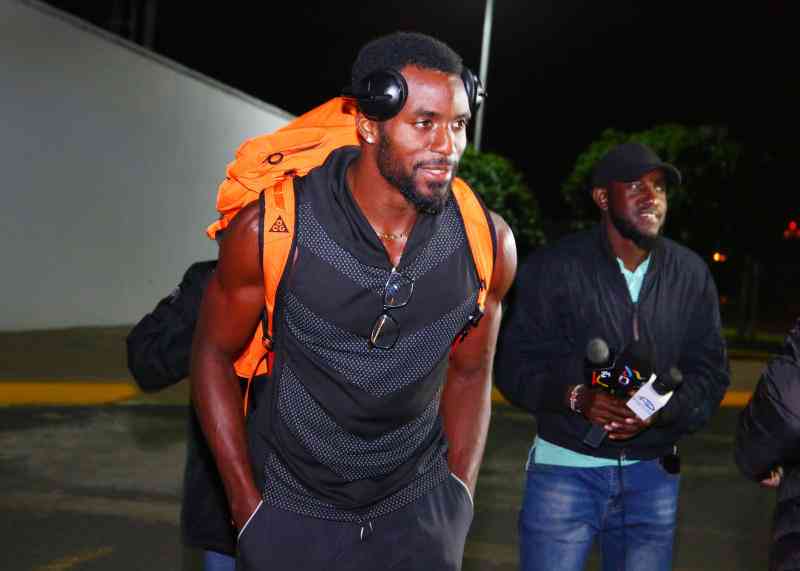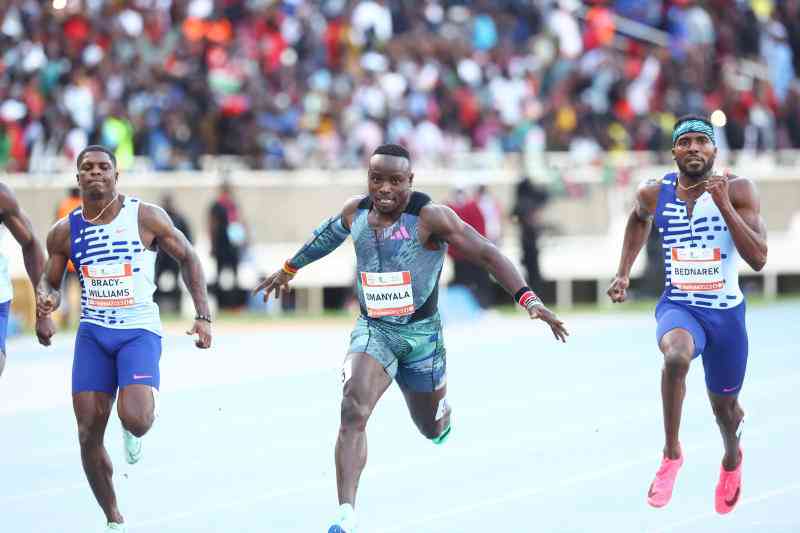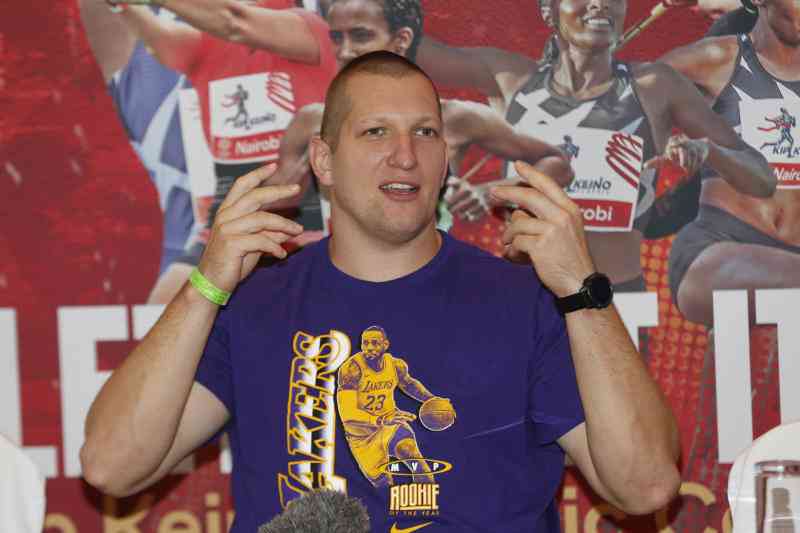 |
|
President Uhuru Kenyatta with Gor Mahia football club players when they presented the 2014 Tusker Premier League Championship trophy at State House, Nairobi. PSCU |
Gor Mahia deserved to win the 2014 Kenya Premier League (KPL) season and retain the trophy.
I say this not merely drawing on the past history of the club, but because of the myriad issues that it had to deal with during that very season.
Still, a reality check should soon roll in for the ardent Gor Mahia fans when the celebrations end. I had the opportunity to witness the ecstatic moments in the stadium during the last game and later on the streets of Kisumu. I want every Gor Mahia fan to fully enjoy the gain.
So as not to take the well deserved credit from Gor Mahia, a club of such tenacity and a very vibrant fan base, the truth though is that the standard of our league is very low. This is primarily technical, but also due to other hidden factors as physiology of our players.
It’s for these reasons that our clubs and the national team currently struggle at the international level. The story of the national team and its management is one that I will revisit at a later date.
Our league is poorly managed unlike the high-riding professional leagues out there as the English league or La Liga. Having played in the former Kenyan First Division league in the 1980s, the precursor of today’s league, I can easily draw comparisons from what I observe today and what was our era.
Since I can also look back into the two with the eyes of a trained coach, the analytical and statistical contents are very clear. That technical eye of a coach, which also bears on some aspects of social science, draws on the other experience of having watched or participated in coaching seminars in such remote leagues as the Brazilian, Mexican, Argentinean and the upcoming Indian version.
Getting closer to the picture, I had the privilege to analyse the match pitting Gor Mahia and Tusker for the former club’s management. This was a unique moment for me since I once played for both clubs.
What I came out with were very glaring lapses emanating from tactical formations. The other more noticeable aspect of the game was the need to advance game intellectualism on the part of the players.
Around the same analysis, I had pressed it on the management of Gor Mahia that the club should not be contented with winning the local league back to back. The club belongs in Africa where the heavyweights reside.
The big challenge therefore is how the club intends to recapture its African history and maintain it. When its place in Africa will be recaptured and maintained, the club will not run after, but will easily attract sponsors.
Even more important, the club will be able to sell its players and grow its community financially. For this last benefit to come to fruition though, the overall standard of Kenyan football needs to upstage itself, especially the Fifa rating of the national team.
So what are some of the causes of low standards in our football today? Definitely, the lack of a progressive model of management in the sport in the country stands out to be a primary cause. What I mean by a progressive model of management is that few of our former players have attained a worldwide recognition in the game or other professional careers, and have come back to the sport’s management locally.
While the lack of former players with worldwide recognition is itself a factor of cultural change, the subject is very complex.
— The writer is a former Gor Mahia player
 The Standard Group Plc is a multi-media organization with investments in media
platforms spanning newspaper print operations, television, radio broadcasting,
digital and online services. The Standard Group is recognized as a leading
multi-media house in Kenya with a key influence in matters of national and
international interest.
The Standard Group Plc is a multi-media organization with investments in media
platforms spanning newspaper print operations, television, radio broadcasting,
digital and online services. The Standard Group is recognized as a leading
multi-media house in Kenya with a key influence in matters of national and
international interest.
 The Standard Group Plc is a multi-media organization with investments in media
platforms spanning newspaper print operations, television, radio broadcasting,
digital and online services. The Standard Group is recognized as a leading
multi-media house in Kenya with a key influence in matters of national and
international interest.
The Standard Group Plc is a multi-media organization with investments in media
platforms spanning newspaper print operations, television, radio broadcasting,
digital and online services. The Standard Group is recognized as a leading
multi-media house in Kenya with a key influence in matters of national and
international interest.







